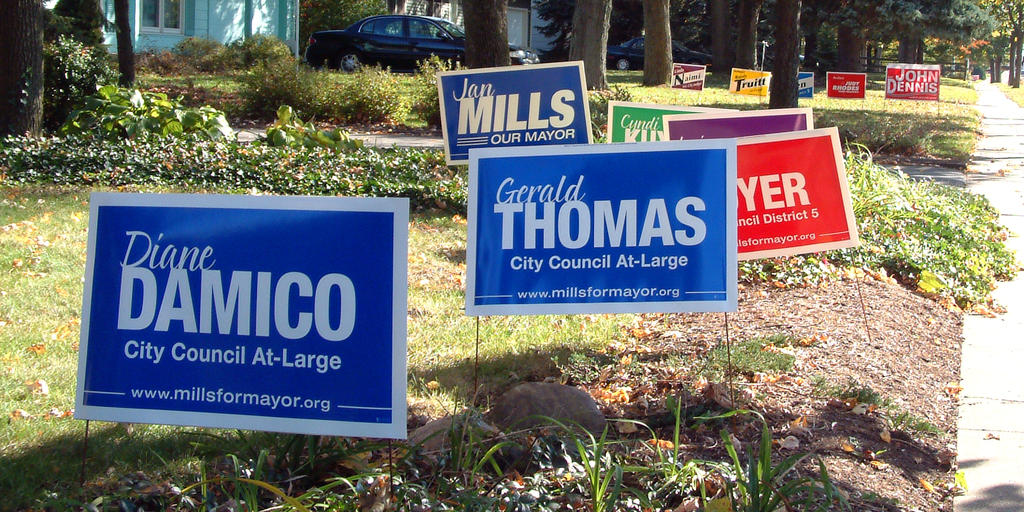
Local government is the hidden leviathan of American politics: it accounts for nearly a tenth of gross domestic product, it collects nearly as much in taxes as the federal government, and its decisions have an enormous impact on Americans’ daily lives. Yet political scientists have few explanations for how people vote in local elections, particularly in the smaller cities, towns, and suburbs where most Americans live. Drawing on a wide variety of data sources and case studies, Local Elections and the Politics of Small-Scale Democracy (Eric Oliver, with Shang Ha and Zachary Callen, 2012) offers the first comprehensive analysis of electoral politics in America’s municipalities.
Arguing that current explanations of voting behavior are ill suited for most local contests, Eric Oliver puts forward a new theory that highlights the crucial differences between local, state, and national democracies.
Professor Oliver argues that three dimensions of a government entity—its size, scope and their ability for bias–will determine whether ideological or civic-minded politicians run for office; whether citizens are mobilized to vote by racial appeals, financial incentives, or civic duty; and whether voters will base their decisions on issues, candidate charisma, partisanship, or other factors. Larger democracies, for instance, simply by having more people in them, are also more likely to have more potential candidates with the ambition or drive to seek leadership posts. Democracies that have greater scope are likely to foster more ideologically motivated candidates and parties. And, as democracies have greater potential for redistribution or “biased”, their elections tend become more “partisan” in the sense that there are now groups who are divided in a zero-sum competition over collective resources.
Being small in size, limited in power, and largely unbiased in distributing their resources, local governments are “managerial democracies” with a distinct style of electoral politics. Instead of hinging on the partisanship, ideology, and group appeals that define national and state elections, local elections are based on the custodial performance of civic-oriented leaders and on their personal connections to voters with similarly deep community ties. Explaining not only the dynamics of local elections, Oliver’s findings also upend many long-held assumptions about community power and local governance, including the importance of voter turnout and the possibilities for grassroots political change.
Read more: Local Elections and the Politics of Small-Scale Democracy (J. Eric Oliver, with Shang E. Ha & Zachary Callen, 2012)
